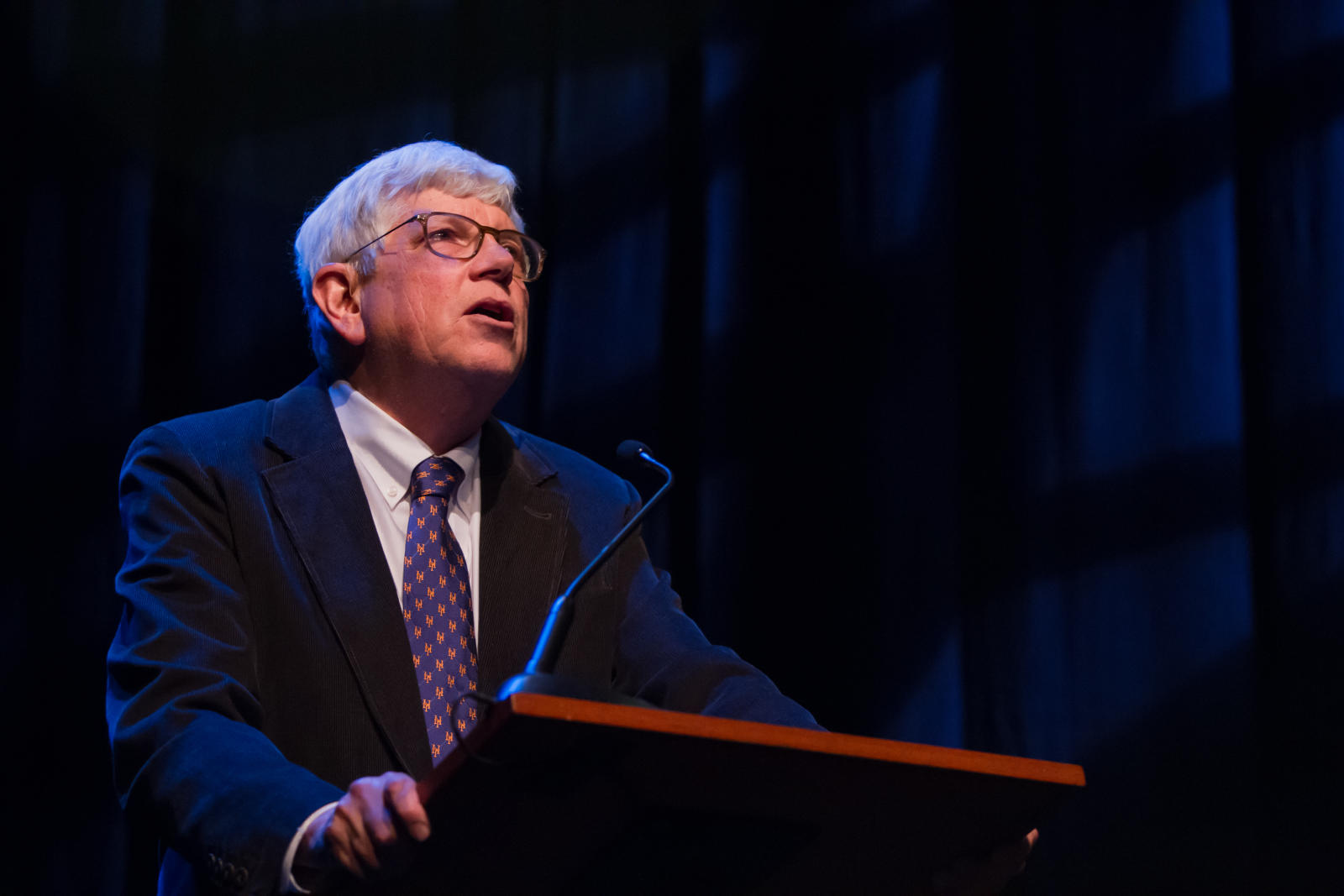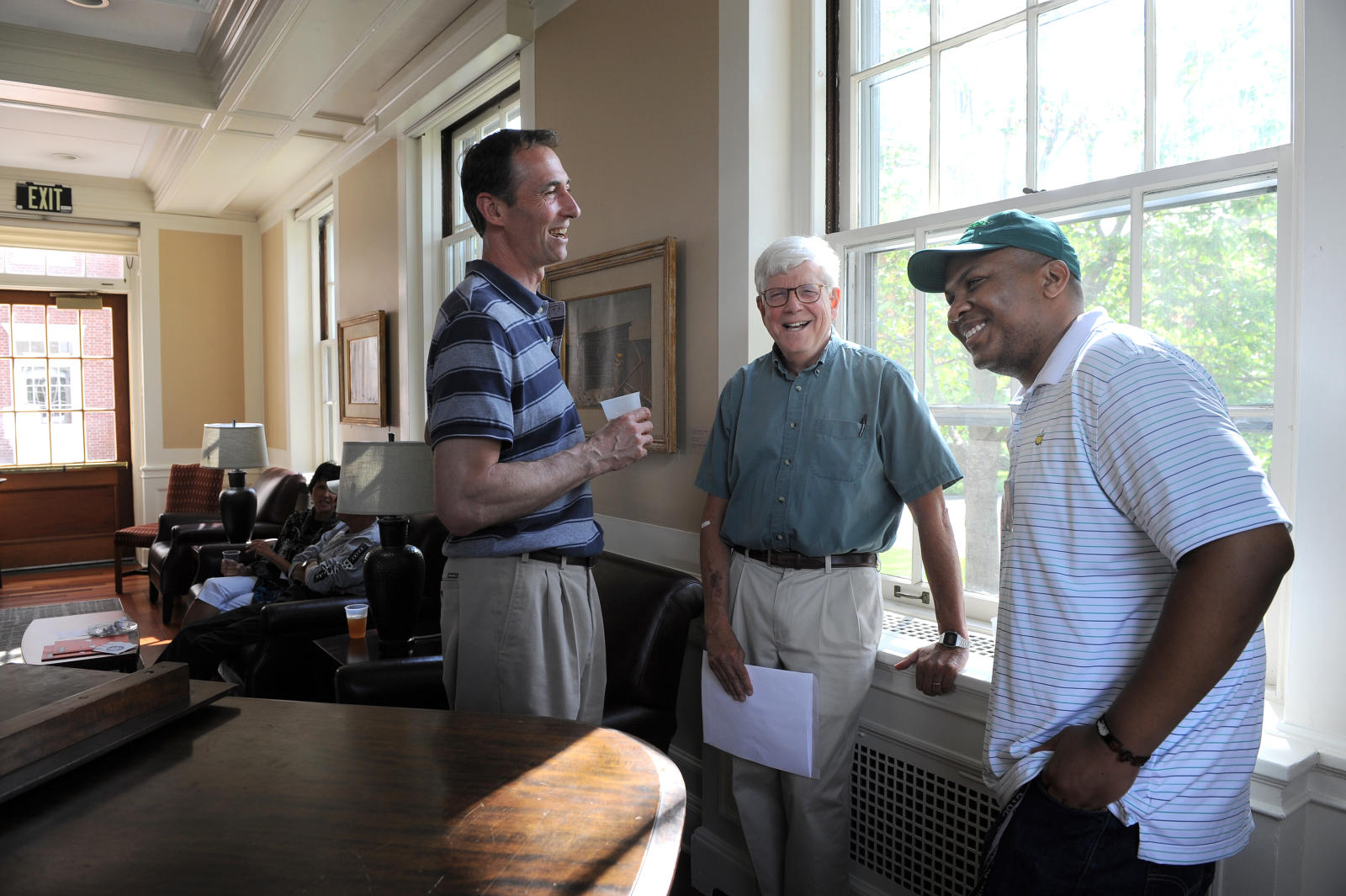Beloved Professor of History Allen Wells retires after 31 years
May 3, 2019
 Courtesy of Office of Communications
Courtesy of Office of CommunicationsOn Allen Wells’ final day of teaching last spring, students and colleagues packed into his classroom in Kanbar Hall, surprising the Roger Howell, Jr. Professor of History with flowers and teary goodbyes.
“What was very funny and very Allen is, he was not quite done teaching, and he was quite visibly like, ‘Okay wait, but we were in the middle of something important here,’” said Meghan Roberts, associate professor of history, with a laugh.
Since then, Wells has been on sabbatical, but he will be fully retiring at the end of this semester. After 31 years at the College, one could laud Wells for his considerable contributions to the field of Latin American scholarship, his integral role in helping build the Latin American Studies program at Bowdoin or even his brief stint in the Dean’s office. But it is his every-day quirks—homemade snacks at evening movie screenings, his wry his sense of humor and his love of baseball—that has garnered a loving and loyal following on campus.
 Courtesy of Office of Communications
Courtesy of Office of Communications“I often joke that I majored in Allen Wells,” said Elise Morano ’20, who took three classes with him.
Wells is known for his warm teaching style and intimate classes with interdisciplinary focus. In a class about the history of Mexico, for example, students traveled to Dartmouth to view a mural by Mexican painter José Clemente Orozco and had the opportunity to Skype with an anthropology professor.
“He really spoke to the importance of how, when you study history, you’re really bringing to life individual stories,” said Norell Sherman ’21. “He emphasized the power of being sensitive and meticulous with your research process and with the way that you present people and present culture.”
Wells is a born and bred New Yorker—he can often be spotted sporting a Mets hat around campus—but he has lived in Maine since 1988. At Bowdoin, Wells helped develop the Latin American Studies program. When Wells arrived, the only Latin American Studies classes were taught by him and a handful of Spanish professors, but the department’s course offerings now span a range of departments, from art history to anthropology. Wells has also seen the history department double in size—there were just eight professors when he arrived.
“Today, there’s a much richer curriculum. So many more areas of history are being covered, so many different places and their history are being taught,” said Wells. “[I have had] some incredible, wonderful colleagues, especially the young people. I always say the young people are to die for in the history department. It’s been great to see that development.”
In turn, Wells’ retirement marks a significant loss for the department.
“He set a model for us of how to be a good Bowdoin professor—to be really excellent in your field but also to be really devoted to your students,” said Roberts. “He’s such a kind and warm individual. It’s impossible not to like Allen. Of course it’s great to speak with him because of his perfect radio voice. It’s hard to lose somebody like that.”
Outside of the classroom, Wells has conducted research up and down the Western Hemisphere. During graduate school at the State University of New York at Stony Brook, he traveled to Yucatán, Mexico, to study 19th century rebellions. In 2012, he wrote about a group of Jewish refugees who fled Nazi Germany and settled in the Dominican Republic. His newest project will explore Cuban reformers who resisted both a program of leftism and military dictatorship before and after the Cuban Revolution.
“The writing and the research part is something that I enjoy,” said Wells. “When you’re teaching, there’s a certain rhythm to the semester, so research gets crowded out. You can’t really get into the momentum of writing. That’s what sabbatical is: to have free and clear [ability] to do that. It’s been quite a gift.”
Although he is retiring, Wells plans to continue his research, and will start another project once his current book is finished. He’s not sure what that project will be, but in the meantime, he is looking back fondly on his time at Bowdoin.
“It’s just been such a gift to have this job. It’s such a great place to work … everyday. I’ve just enjoyed going to work,” said Wells. “Sometimes a particular class will go really great, sometimes not … I focus on the things that I’ve enjoyed, and you hope students enjoy it as well.”

Comments
Before submitting a comment, please review our comment policy. Some key points from the policy: